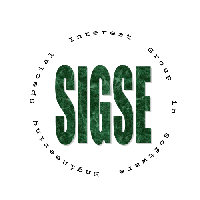Research Papers
The selection process of research papers is the most stringent. ISSRE prides itself that researchers send in their best work, which is peer reviewed. This year, each paper was reviwed on the average by four best in class researchers and the reviews discussed at the face to face meeting of the program committee in July at Raleigh NC. 21 papers were selected from close to 90 papers submitted.
Preface to the IEEE Research Papers Proceedings
1. Reliability Modeling
- Complexity Reliability Model, by Norman Schneidewind
- Wavelet-based Approach for Estimating Software Reliability, by Xiao Xiao and Tadashi Dohi
- Estimating the probability of failure when software runs are dependent: An empirical study, by Katerina Goseva-Popstojanova and Margaret Hamill
2. Testing
- Reducing Field Failures in System Configurable Software: Cost-Based Prioritization, by Hema Srikanth, Myra Cohen, and Xiao Qu
- Harnessing Web-based Application Similarities to Aid in Regression Testing, by Kinga Dobolyi and Westley Weimer
- On the Effectiveness of Unit Test Automation at Microsoft, by Laurie Williams, Nachiappan Nagappan, and Gunnar Kudrjavets
3. Runtime Monitoring and Verification
- Applying the Composition Filter Model for Runtime Verification of Multiple-Language, by Somayeh Malakuti, Christoph Bockisch, and Mehmet Aksit
- Efficiently Extracting Operational Profiles from Execution Logs using Suffix Arrays, by Meiyappan Nagappan, Kesheng Wu, and Mladen Vouk
- Optimal Adaptive System Health Monitoring and Diagnosis For Resource Constrained Cyber-Physical Systems, by Yansheng Zhang, I-Ling Yen, Farokh Bastani, A.T Tai, and Savio Chau
4. Predicting Defects and Failures
- Approximating Deployment Metrics to Predict Field Defects and Plan Corrective Maintenance Activities [Experience Report], by Brian Robinson, Will Snipes, and Penelope Brooks
- Variance analysis in software fault prediction models, by Bojan Cukic, Tim Menzies, and Yue Jiang
- Putting it All Together: Using Socio-Technical Networks to Predict Failures, by Christian Bird, Nachiappan Nagappan, Premkumar Devanbu, Harald Gall, and Brendan Murphy
5. Security
- Optimal Security Patch Release Timing Under Non-Homogeneous Vulnerability-Discovery Processes, by Hiroyuki Okamura and Tadashi Dohi
- Looking at Web Security Vulnerabilities from the Programming Language Perspective: A Field Study, by Nuno Seixas, José Fonseca, Marco Vieira, and Henrique Madeira
- Towards a Unifying Approach in Understanding Security Issues from a Reliability Perspective, by Prasanth Anbalagan and Mladen Vouk
6. Fault Analysis
- Fault tree analysis of software-controlled component systems based on second-order probabilities, by Marc Förster and Mario Trapp
- Issues on the Design of Efficient Fail-Safe Fault Tolerance, by Arshad Jhumka and Matt Leeke
- Insights on Fault Interference for Programs with Multiple Bugs, by Vidroha Debroy and W. Eric Wong
7. Patterns and Behavioral Models
- Automated Identification of LTL Patterns in Natural Language Requirements, by Allen Nikora and Galen Balcom
- Event-Based Input Validation Using Design-by-Contract Patterns [Experience Report], by Tugkan Tuglular, Can Muftuoglu, Fevzi Belli, and Michael Linschulte
- Towards Behavioral Reflexion Models, by Christopher Ackermann, Mikael Lindvall, and Rance Cleaveland







